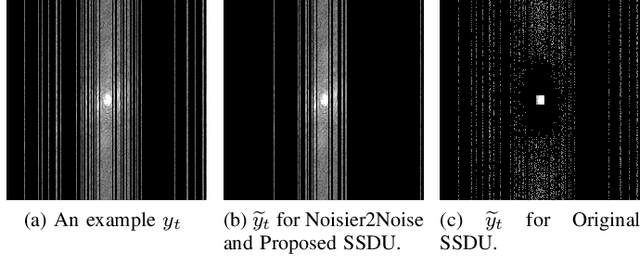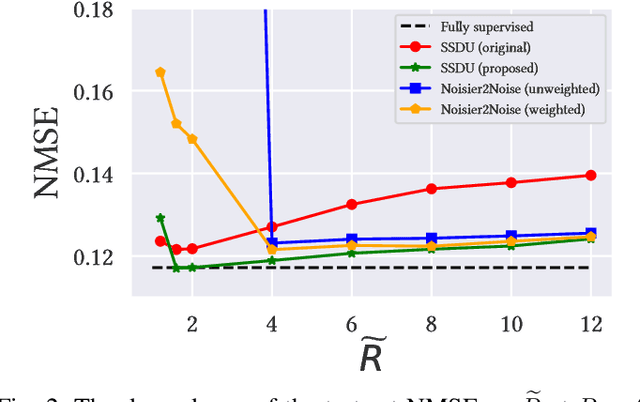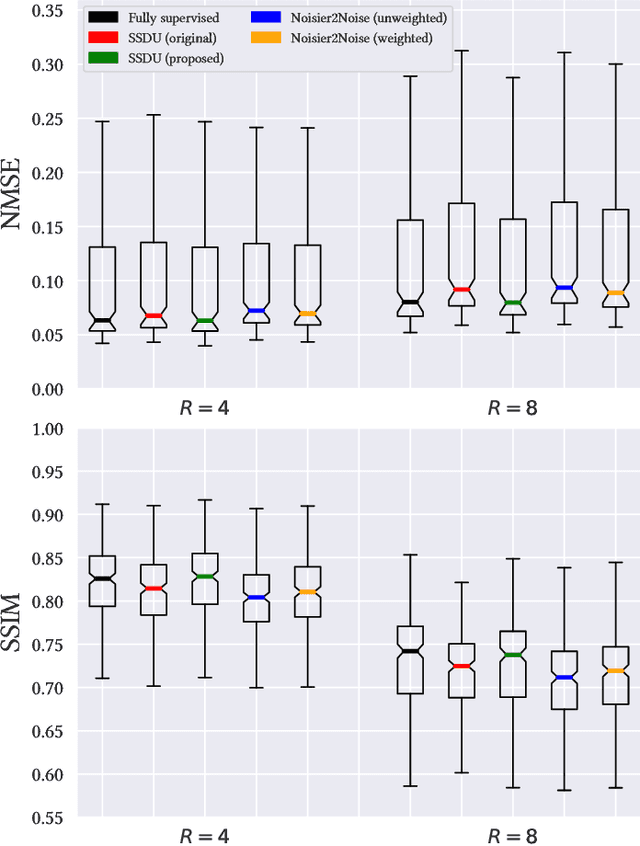Self-supervised deep learning MRI reconstruction with Noisier2Noise
Paper and Code
May 20, 2022



In recent years, there has been attention on leveraging the statistical modeling capabilities of neural networks for reconstructing sub-sampled Magnetic Resonance Imaging (MRI) data. Most proposed methods assume the existence of a representative fully-sampled dataset and use fully-supervised training. However, for many applications, fully sampled training data is not available, and may be highly impractical to acquire. The development of self-supervised methods, which use only sub-sampled data for training, are therefore highly desirable. This work extends the Noisier2Noise framework, which was originally constructed for self-supervised denoising tasks, to variable density sub-sampled MRI data. Further, we use the Noisier2Noise framework to analytically explain the performance of Self-Supervised Learning via Data Undersampling (SSDU), a recently proposed method that performs well in practice but until now lacked theoretical justification. We also use Noisier2Noise to propose a modification of SSDU that we find substantially improves its reconstruction quality and robustness, offering a test set mean-squared-error within 1% of fully supervised training on the fastMRI brain dataset.
 Add to Chrome
Add to Chrome Add to Firefox
Add to Firefox Add to Edge
Add to Edge